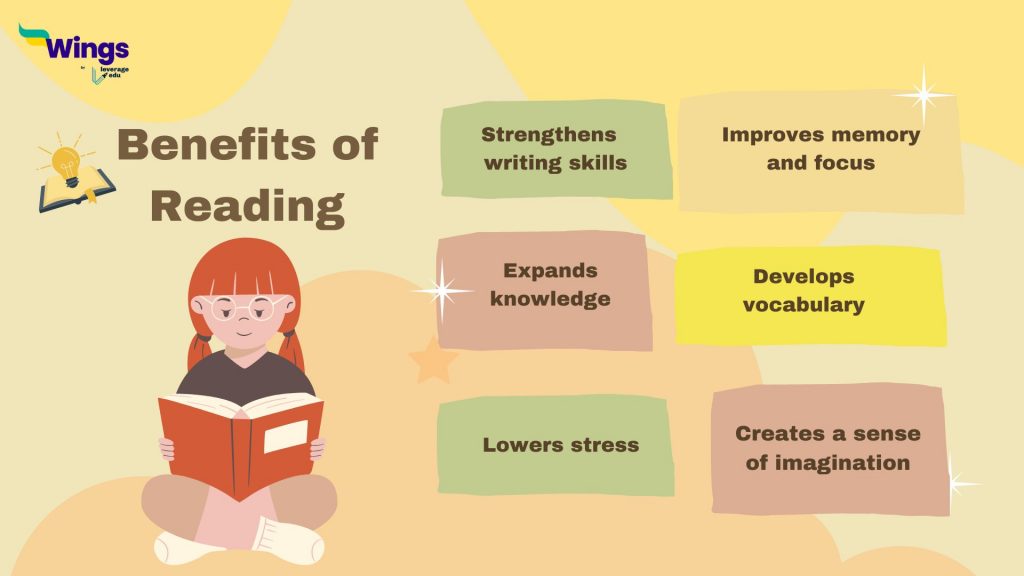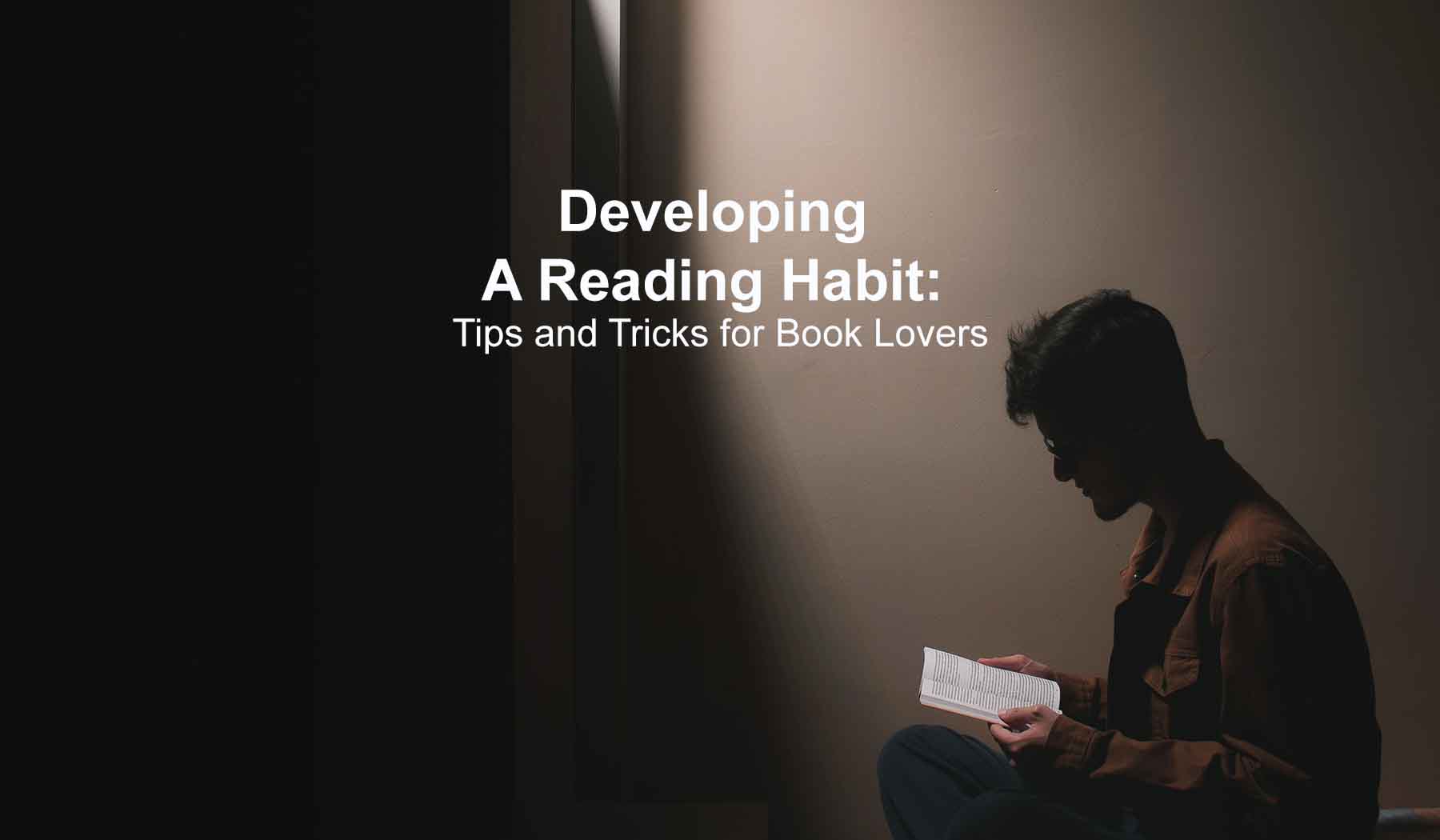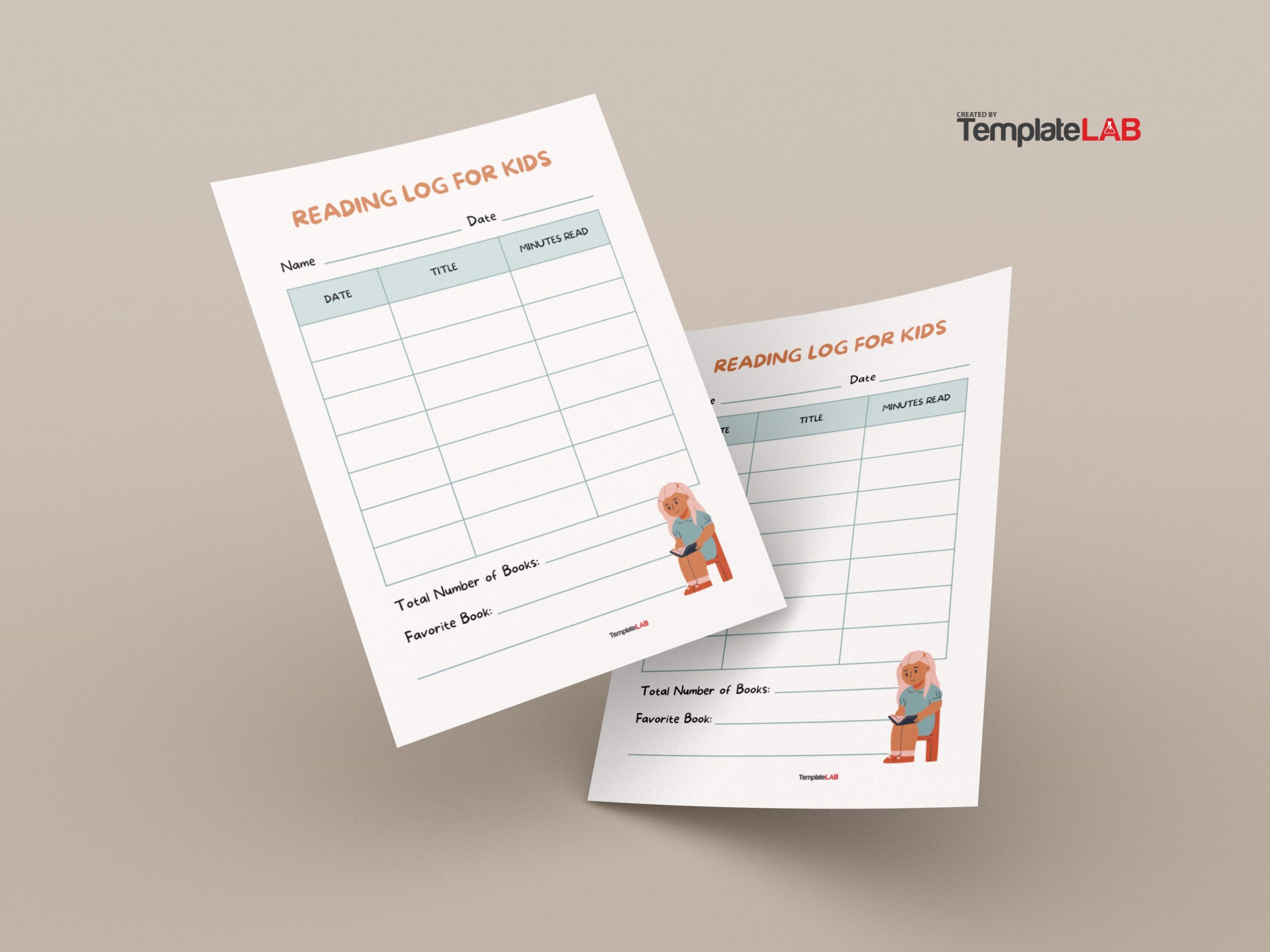How to build a reading habit and make time for it in your daily routine

Introduction
If you want to expand your knowledge, enhance your vocabulary, and stimulate your mind, building a reading habit is key. Whether you are a student, professional, or simply someone who wants to improve themselves, reading regularly can have significant benefits.
Why building a reading habit is important
1.Knowledge Expansion: Reading exposes you to a wealth of information and allows you to explore new ideas. It broadens your understanding of various subjects and keeps you updated on current events.
2.Vocabulary Improvement: Reading exposes you to new words and phrases, helping to expand your vocabulary. This can enhance your communication skills and make you a more effective writer and speaker.
3.Mental Stimulation: Engaging with written material stimulates your brain, improves concentration, and enhances critical thinking skills. Reading regularly can also boost memory and slow down cognitive decline.
4.Stress Relief: Reading can serve as a form of escapism, transporting you to different worlds and diverting your focus from everyday worries. It can promote relaxation and reduce stress levels.
5.Personal Development: Reading self-help and motivational books can inspire personal growth and provide guidance for achieving goals. It allows you to learn from the experiences and wisdom of others.
By cultivating a reading habit, you can unlock a world of knowledge, improve your skills, and nourish your mind. Make reading a priority in your daily routine and reap the rewards it brings.

Benefits of Reading
Exploring the various advantages of reading regularly
If you want to develop a reading habit, you're on the right track to enriching your life in countless ways. Here are some key benefits of reading regularly:
-
Expanding Knowledge: Reading exposes you to new ideas, perspectives, and information, helping you expand your knowledge base in various subjects.
-
Improving Vocabulary: Regular reading enhances your vocabulary, allowing you to express yourself more effectively and improve your communication skills.
-
Stress Reduction: Engaging in a story or immersing yourself in a book can transport you to another world, offering a welcome escape from stress and everyday worries.
-
Enhanced Analytical Thinking: Reading exposes you to different writing styles and narratives, ultimately sharpening your analytical and critical thinking skills.
-
Improved Focus and Concentration: Reading requires focus and concentration, helping train your mind to stay engaged for longer periods.
-
Developing Empathy: Reading fiction allows you to experience different characters' perspectives and emotions, fostering empathy and understanding.
-
Better Sleep: Incorporating reading into your bedtime routine can promote relaxation and better sleep quality.
To build a reading habit, commit to a daily reading routine and set specific goals. Choose books of interest and create a comfortable reading environment. Start with short reading sessions, gradually increasing the duration. Remember, reading is not only enjoyable but also a valuable investment in personal growth.

Setting Reading Goals
Determining the types of books to read and how often
To build a strong reading habit, it is important to set clear goals that align with your interests and schedule. Here are some key points to consider:
-
Identify your interests: Think about what genres, topics, or authors captivate you the most. This will help you select books that resonate with your preferences, making it easier to stay engaged and motivated.
-
Set a realistic reading schedule: Determine how often you can realistically dedicate time to reading. It could be daily, a few times a week, or even just on weekends. Consistency is key, so choose a schedule that works best for you.
-
Start with achievable goals: Begin with smaller reading goals and gradually increase them as you make progress. Setting achievable targets will help you stay motivated and avoid feeling overwhelmed.
-
Track your progress: Keep a record of the books you have read and mark off your completed goals. This visual representation of your progress can be motivating and encourage you to continue reading.
-
Explore new genres: Don't limit yourself to one genre. Branch out and explore different types of books to broaden your reading experience and discover new interests.
Remember, building a reading habit takes time and consistency. By setting clear goals and staying committed to your reading schedule, you'll be on your way to cultivating a lifelong love for reading.

Creating a Reading Routine
If you want to build a reading habit, it's important to establish a consistent reading schedule. Here are some tips to help you get started.
Establishing a consistent reading schedule
-
Set aside dedicated time: Determine a specific time of day when you will focus solely on reading. This could be in the morning, during lunch breaks, or before bed.
-
Start small and gradually increase: Begin with just 15-30 minutes of reading time and gradually increase it as you become more comfortable. Consistency is key to developing a habit.
-
Create a reading-friendly environment: Find a quiet and comfortable space where you can concentrate on reading without distractions. Remove any electronic devices or other potential interruptions.
-
Choose books you enjoy: Select books that align with your interests and preferences. Reading becomes more enjoyable when you genuinely like the subject matter.
-
Track your progress: Use a reading journal or app to track the number of books you read or the amount of time you spend reading. This can help motivate you to continue and see your progress over time.
Remember, building a reading habit takes time and consistency. Be patient with yourself and keep pushing forward. Soon enough, reading will become a natural and enjoyable part of your daily routine.

Choosing the Right Reading Material
Finding books that match your interests
When building a reading habit, it's crucial to start with books that capture your interest and keep you engaged. Here are some tips to help you find the right reading material:
-
Explore different genres: Take the time to explore various genres and topics to discover what resonates with you. Whether it's fiction, self-help, biographies, or fantasy, there is a genre for every preference.
-
Join book clubs or online communities: Engage with other readers who share similar interests. Book clubs and online communities provide a platform to discuss, recommend, and discover new books that align with your taste.
-
Read reviews and recommendations: Browse book reviews and recommendations from trusted sources or individuals with similar reading preferences. Platforms like Goodreads and Amazon offer customer reviews and personalized recommendations based on your reading history.
-
Visit your local library or bookstore: Explore the shelves and talk to librarians or bookstore staff who can suggest books based on your interests. They can guide you towards lesser-known titles or authors that might pique your curiosity.
Remember, building a reading habit is not just about quantity, but also quality. By choosing books that genuinely interest you, you will be more likely to enjoy the reading experience and develop a lifelong love for books. So take the time to find the perfect reading material that sparks your curiosity and opens up new worlds of knowledge and entertainment.

Eliminating Distractions
Tips for creating a conducive reading environment
To build a reading habit, it's crucial to create a conducive environment that helps you focus and eliminate distractions. Here are some tips to get you started:
-
Designate a reading space: Choose a quiet area in your home or office where you can read without interruptions. Make this space comfortable and equipped with good lighting to avoid straining your eyes.
-
Turn off notifications: Silence your phone and turn off notifications on your devices to minimize distractions. Set aside dedicated reading time and inform others not to disturb you during that period.
-
Manage your time: Set a specific time each day for reading and stick to it. Consistency is key to building a reading habit. Consider incorporating reading into your daily routine, such as during your commute or before bed.
-
Keep books handy: Ensure you always have a book or e-reader with you. This way, you can seize any opportunity to read, whether it's during breaks, waiting in line, or while traveling.
-
Create accountability: Join a book club or find a reading buddy to motivate and hold you accountable. Sharing thoughts and discussing books with others can enhance your reading experience.
Remember, building a reading habit takes time and discipline. Start with small goals and gradually increase your reading time. By creating a distraction-free environment and incorporating reading into your daily routine, you'll be well on your way to developing a lifelong love for books.

Taking Notes and Highlighting
Improving comprehension and retention through active reading
If you want to build a strong reading habit, taking notes and highlighting key points can greatly enhance your comprehension and retention of the material. This active reading technique allows you to engage with the text and extract important information that you can easily refer back to.
When you come across a significant idea or concept, use a highlighter or underline the text to make it stand out. This will help you quickly spot key points when you review the material later. Additionally, jotting down notes in the margins or in a separate notebook can further reinforce your understanding and serve as a valuable reference.
By actively interacting with the text through note-taking and highlighting, you are actively processing and synthesizing the information, leading to improved comprehension and retention. This technique is particularly effective for non-fiction books, textbooks, and other educational materials.
Remember to strike a balance between highlighting and note-taking – too much can be overwhelming, while too little might not be helpful. Aim to capture the main ideas, important details, and any questions or thoughts that arise during your reading.
So, grab your favorite pen and start enhancing your reading experience through active reading techniques like note-taking and highlighting. With practice, you'll develop a more effective and enjoyable reading habit.

Joining Book Clubs or Reading Communities
Finding like-minded individuals to discuss and share recommendations
If you are looking to build a reading habit, joining book clubs or reading communities can be a great way to enhance your reading experience and connect with fellow book lovers. Here's why you should consider it:
-
Find like-minded individuals: Book clubs and reading communities provide a platform to meet people who share your passion for books. This allows you to engage in discussions, exchange recommendations, and discover new genres or authors that you may not have considered before.
-
Expand your reading list: Interacting with others who have different reading preferences can introduce you to books outside of your comfort zone. This broadens your literary horizons and exposes you to a wider range of perspectives and genres.
-
Motivation and accountability: Being part of a book club or reading community provides motivation and accountability to stay committed to your reading goals. Regular meetings and discussions encourage you to consistently read and finish books in a timely manner.
-
Enhanced understanding: Engaging in discussions with fellow readers allows you to gain different insights and interpretations of the books you read. This enhances your understanding and appreciation of the content, leading to a more enriching reading experience.
Remember, finding the right book club or reading community that aligns with your interests and schedule is crucial. Do some research, ask for recommendations, and don't hesitate to try out a few until you find the perfect fit. Happy reading!

Building a Personal Library
Organizing and collecting books to enhance the reading experience
When it comes to building a reading habit, having a personal library is essential. Here are some key steps to help you build a collection that will enhance your reading experience.
-
Define your reading preferences: Start by identifying the genres and topics that interest you the most. This will guide you in selecting books that align with your personal taste.
-
Set a budget and prioritize: Determine how much you can allocate towards purchasing books. Prioritize based on books that are highly recommended or align with your current reading goals.
-
Explore different sources: Look beyond traditional bookstores and consider visiting second-hand bookshops, online marketplaces, and library sales. These sources often offer a wide range of books at affordable prices.
-
Organize your collection: Once you've acquired a few books, organize them in a way that is visually appealing and makes it easy for you to find what you want to read. You can arrange them alphabetically, by genre, or simply based on your personal preference.
-
Create a reading schedule: Set aside dedicated time each day or week to read. Having a regular reading schedule will help you build a habit and ensure that you make progress in your reading goals.
Remember, building a personal library is an ongoing process. Continuously seek out new titles, share recommendations with friends, and make the most of your reading journey by exploring different genres and authors.

Overcoming Reading Slumps
Strategies for getting back on track when motivation wanes
Are you finding it difficult to maintain a consistent reading habit? It's common for readers to experience slumps, but fear not! There are strategies to help you get back on track.
-
Set a Reading Goal: Establish a realistic reading goal for each day or week. It could be as simple as reading for 20 minutes a day. Setting goals helps maintain motivation and provides a sense of accomplishment.
-
Create a Reading Schedule: Allocate specific time slots for reading in your daily routine. Treat it as a non-negotiable appointment with yourself.
-
Join a Book Club: Engaging with a community of readers can reignite your passion for reading. Book clubs offer discussions, recommendations, and accountability.
-
Explore Different Genres: If you're feeling bored or stuck, try exploring new genres. Broadening your reading horizons can introduce fresh perspectives and reignite your interest.
-
Limit Distractions: Find a quiet and comfortable reading space where you can minimize distractions. Turn off notifications on your phone or put it on silent mode.
-
Reward Yourself: Treat yourself after completing a book or achieving a reading milestone. Rewards can be as simple as enjoying a cup of tea or buying a new book.
Remember, building a reading habit takes time and patience. Be kind to yourself during reading slumps and don't give up. Soon enough, you'll be back on track and enjoying the wonderful world of books.

Exploring Different Genres
Expanding reading horizons by trying new genres
If you want to build a reading habit, one effective strategy is to explore different genres. By venturing into unfamiliar literary territories, you can broaden your perspective, discover new interests, and expand your knowledge base. Here are some key reasons why you should embrace reading different genres:
-
Intellectual Stimulation: Reading different genres challenges your mind and exposes you to diverse ideas, perspectives, and writing styles. This intellectual stimulation can enhance your critical thinking skills and expand your mental horizons.
-
Discover New Interests: Trying different genres allows you to discover new subjects, themes, or genres you may have never considered. You might find unexpected enjoyment in a genre you never thought you would appreciate.
-
Engaging Imagination: Each genre has its own unique way of capturing the imagination. From the fantastical worlds of science fiction to the immersive historical settings of historical fiction, exploring different genres can transport you to new and exciting realms.
-
Well-Rounded Perspective: By reading widely across genres, you gain a well-rounded perspective on various topics and themes. This can help you develop empathy, expand your cultural understanding, and enhance your ability to connect with people from different backgrounds.
Remember, building a reading habit is about finding enjoyment and growth through literature. So go ahead and explore different genres to open up a world of possibilities in your reading journey.

Tracking Progress
Setting up reading challenges and keeping a reading log
If you want to build a reading habit, it's crucial to track your progress and set goals. Here's how you can do it effectively:
-
Set Reading Challenges: Challenge yourself to read a certain number of books within a specific period. This will keep you motivated and accountable. Start with achievable goals and gradually increase the difficulty level. Joining book clubs or online reading challenges can also provide additional motivation.
-
Keep a Reading Log: Maintain a log of all the books you read. Include details such as the title, author, and date of completion. You can use a dedicated journal, digital apps, or online platforms to log your reading progress. This log will not only help you track your accomplishments but also serve as a source of motivation.
-
Reflect on Your Reading: Take time to reflect on what you've read. Consider writing short reviews or summaries of each book. Reflecting on your reading enhances comprehension and helps you retain valuable insights.
-
Share with Others: Discussing books with others can deepen your reading experience. Join book clubs or online communities where you can share recommendations, discuss themes, and engage in meaningful conversations with fellow book lovers.
Remember, building a reading habit is a lifelong journey. By setting challenges, keeping a reading log, reflecting, and sharing with others, you can make reading an enjoyable and fulfilling part of your daily routine.

XIII. Engaging in Discussion and Reflection
Deepening understanding by discussing and reflecting on books read
To build a strong reading habit, it's not enough to just read books. Engaging in discussions and reflecting on what you've read can greatly enhance your understanding and enjoyment. Here are a few tips to help you get started:
-
Join a book club or reading group: Being part of a community of readers provides the opportunity to discuss books, share insights, and gain new perspectives. You can find local book clubs or join online communities that align with your interests.
-
Start a reading journal: Keeping a record of your thoughts and reflections on books can help you deepen your understanding. Write down key quotes, favorite passages, or ideas that resonated with you. This will also serve as a reference for future discussions or personal reflection.
-
Engage in online book discussions: Participating in online forums or social media groups centered around books allows you to connect with fellow readers from around the world. Share your thoughts, ask questions, and learn from others' perspectives.
-
Attend author events or book signings: Take advantage of opportunities to meet authors and hear them speak about their books. These events often provide insights into the writing process, character development, and themes that can enrich your understanding of the work.
Remember, the goal of discussion and reflection is not to impose a single interpretation but to broaden your understanding and discover new insights. Embrace diverse viewpoints and embrace the joy of learning from others.

XIV. Cultivating a Reading-friendly Environment
Creating spaces that inspire reading
Creating a reading-friendly environment can greatly enhance your reading habit. Here are some tips to help you set up a space that inspires reading:
-
Designate a quiet area: Find a quiet corner or room in your home where you can create a reading nook. Make sure it is free from distractions and noise.
-
Comfortable seating: Invest in a comfortable chair or a cozy reading sofa to make your reading experience more enjoyable. Add cushions and throws for extra comfort.
-
Good lighting: Ensure that your reading area is well-lit to avoid straining your eyes. Natural light is best, but if that's not possible, choose warm, soft lighting options.
-
Organize your books: Arrange your books neatly on shelves or in bookcases. Categorize them by genre or author for easy access and a visually appealing display.
-
Remove digital distractions: Keep electronic devices like smartphones, tablets, and laptops away from your reading area. These distractions can disrupt your reading flow.
-
Create a cozy atmosphere: Add some personal touches to your reading space, such as scented candles, a small indoor plant, or artwork, to create a warm and inviting ambiance.
Remember, a reading-friendly environment can make a significant difference in cultivating a reading habit. Take the time to create a space that encourages you to pick up a book and get lost in its pages.

XV. Conclusion
Highlighting the importance of persistence and enjoyment in building a reading habit
To build a reading habit, it is crucial to be persistent and find enjoyment in the activity. Here are a few key points to keep in mind:
-
Set a Reading Goal: Determine how many books or pages you want to read each day or week. Having a goal gives you a sense of direction and helps you stay motivated.
-
Create a Reading Routine: Set aside a specific time each day dedicated to reading. Whether it's in the morning, during lunch break, or before bed, consistency is key.
-
Find Books You Enjoy: Explore different genres and authors until you find what you truly enjoy. Reading should be a pleasurable experience, so don't be afraid to switch between fiction, non-fiction, or any other genre that captures your interest.
-
Eliminate Distractions: Find a quiet and comfortable space where you can fully immerse yourself in the reading experience. Turn off your phone or put it on silent to avoid interruptions.
-
Join a Book Club or Reading Group: Engaging with others who share your love for reading can provide motivation, recommendations, and opportunities for discussion.
-
Track Your Progress: Keep a reading journal or use apps that allow you to record the books you read and your thoughts about them. This can serve as a reminder of your accomplishments and encourage you to continue.
Remember, building a reading habit takes time and effort. Be patient with yourself, explore various genres, and make reading a pleasurable and enriching part of your daily life.

